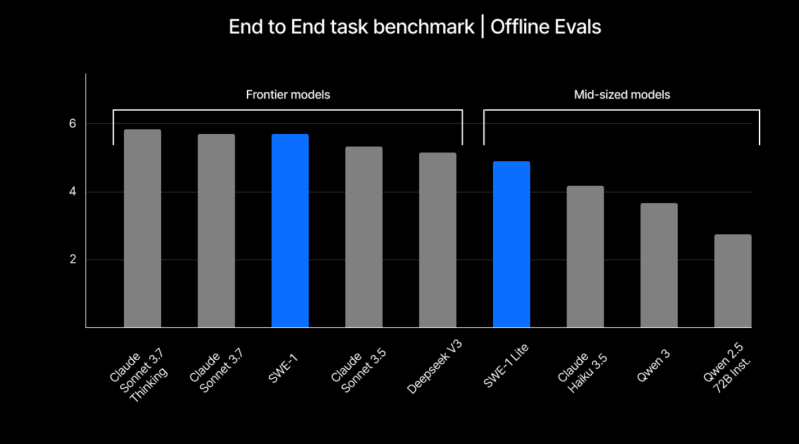Windsurf, formerly known as Codeium, has unveiled SWE-1, a groundbreaking family of frontier-class AI models designed to transform the software engineering landscape. This development comes as the company is reportedly being acquired by OpenAI for up to $3 billion, although the deal has not been formally finalized.
The Limitations of Current AI Coding Models
Traditional AI coding models, such as OpenAI’s GPT-4.1, Anthropic Claude 3.7, and Google’s Gemini 2.5 Pro I/O edition, have primarily focused on code generation. However, software engineering encompasses a much broader range of tasks, including code review, maintenance, and project management. Windsurf’s Anshul Ramachandran, head of product and strategy, noted that existing models tend to excel with user guidance but often miss critical details over time due to their limited scope.
Introducing SWE-1: A Family of Specialized Models
SWE-1 addresses this limitation by providing a family of three specialized models tailored to different aspects of software engineering:
- SWE-1: The full-size model, designed for advanced reasoning and tool use, available to all paid users.
- SWE-1-lite: A smaller but powerful model that replaces Windsurf’s existing Cascade Base, available to both free and paid users.
- SWE-1-mini: A lightweight model powering passive code predictions in Windsurf Tab, available unlimited to all users.
These models were developed through an extensive in-house training process focused specifically on software engineering tasks, utilizing a new data model with sequential steps.
Technical Edge: Flow Awareness and Shared Timelines
Windsurf’s approach is distinguished by its implementation of “flow awareness,” which involves understanding the broader context of software development beyond individual coding tasks. This concept centers on creating a shared timeline of actions between humans and AI, progressively transferring tasks from human to AI as the models improve. Ramachandran explained that this creates a continuous improvement loop, enabling the AI to take over more responsibilities as it advances.
Implications for Technical Decision-Makers
For enterprises building or maintaining software, SWE-1 represents a significant evolution in AI-assisted development. By addressing the entire development lifecycle, rather than just code generation, SWE-1 promises to accelerate software engineering processes substantially. Technical leaders should consider how much of their development workflow could benefit from AI assistance beyond mere code generation, particularly in areas like code reviews, debugging, and managing technical debt.

The potential impact of SWE-1 extends beyond just writing code more quickly. It has the potential to mature the coding paradigm to be more applicable for stable enterprise software development. While it’s still early days for SWE-1, this move is crucial, and its importance could be amplified if OpenAI completes the acquisition of Windsurf, bringing together significant model research and development resources.


